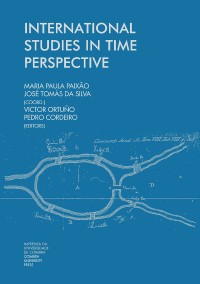Please use this identifier to cite or link to this item:
https://hdl.handle.net/10316.2/38623| DC Field | Value | Language |
|---|---|---|
| dc.contributor.author | Petrash, Marina D. | |
| dc.contributor.author | Strizhitskaya, Olga Y. | |
| dc.date.accessioned | 2016-02-05T14:51:16Z | |
| dc.date.accessioned | 2020-09-09T00:36:52Z | - |
| dc.date.available | 2016-02-05T14:51:16Z | |
| dc.date.available | 2020-09-09T00:36:52Z | - |
| dc.date.issued | 2013 | - |
| dc.identifier.isbn | 978-989-26-0668-2 | |
| dc.identifier.isbn | 978-989-26-0775-7 (PDF) | |
| dc.identifier.uri | https://hdl.handle.net/10316.2/38623 | - |
| dc.description.abstract | This research is devoted to the formation of professional future emotional position in professional development among young adults. The study considers the relationship between occupational choice factor, emotional position to professional future and professional development factors. Participants (N=179) were divided into two groups: students (M. age=19, SD=1.3), young professionals (M. age =25.4, SD=2.4). Emotional position to professional future was measured with the M.Gynzburg questionnaire, including six scales: fear, anxiety, indifference, optimism, confi dence, interest. The occupational choice factor included two special questions: 1) awareness of choice; 2) correctness of choice. Six professional development factors were measured by special questions: the professional development factors: “Contentment of a professional life” and “Professional Self-realization”; four professional activity factors: “Psycho-physiological recover”, “Dedication”, “Self-control of behavior”, and “Interpersonal communication”. Correlation analysis proved that the occupational choice factor correlates with emotional position to professional future and all professional development factors. The correct choice and negative modalities of emotional position to professional future were negatively and signifi cantly correlated (p≤ 0.001). The correct and aware choice, positive emotional position modalities and all factors of professional development were positively correlated (p≤ 0.01; p≤ 0.001). The correct and aware choice was determined to be the most relevant predictor of positive position to professional future and constructive professional development. | eng |
| dc.language.iso | eng | - |
| dc.publisher | Imprensa da Universidade de Coimbra | por |
| dc.relation.ispartof | http://hdl.handle.net/10316.2/38604 | por |
| dc.rights | open access | - |
| dc.subject | occupational choice | eng |
| dc.subject | emotional position | eng |
| dc.subject | professional future | eng |
| dc.subject | professional development | eng |
| dc.subject | predictor of positive attitude | eng |
| dc.title | Occupational choice factor and professional future perspective in early adulthood | por |
| dc.type | bookPart | por |
| uc.publication.collection | Investigação | por |
| uc.publication.firstPage | 177 | - |
| uc.publication.lastPage | 181 | - |
| uc.publication.location | Coimbra | por |
| dc.identifier.doi | 10.14195/978-989-26-0775-7_19 | - |
| uc.publication.section | Part 4 – The role played by time perspective in career and vocational development | por |
| uc.publication.digCollection | PB | por |
| uc.publication.orderno | 19 | - |
| uc.publication.area | Ciências Sociais | por |
| uc.publication.bookTitle | International studies in time perspective | - |
| uc.publication.manifest | https://dl.uc.pt/json/iiif/10316.2/38623/207056/manifest?manifest=/json/iiif/10316.2/38623/207056/manifest | - |
| uc.publication.thumbnail | https://dl.uc.pt/retrieve/11110816 | - |
| uc.publication.parentItemId | 54587 | - |
| uc.itemId | 69424 | - |
| item.grantfulltext | open | - |
| item.fulltext | With Fulltext | - |
| Appears in Collections: | International studies in time perspective | |
Files in This Item:
| File | Description | Size | Format | |
|---|---|---|---|---|
| occupational_choice_factor_and_professional_future_perspective.pdf | 3.86 MB | Adobe PDF |  |
Items in DSpace are protected by copyright, with all rights reserved, unless otherwise indicated.
